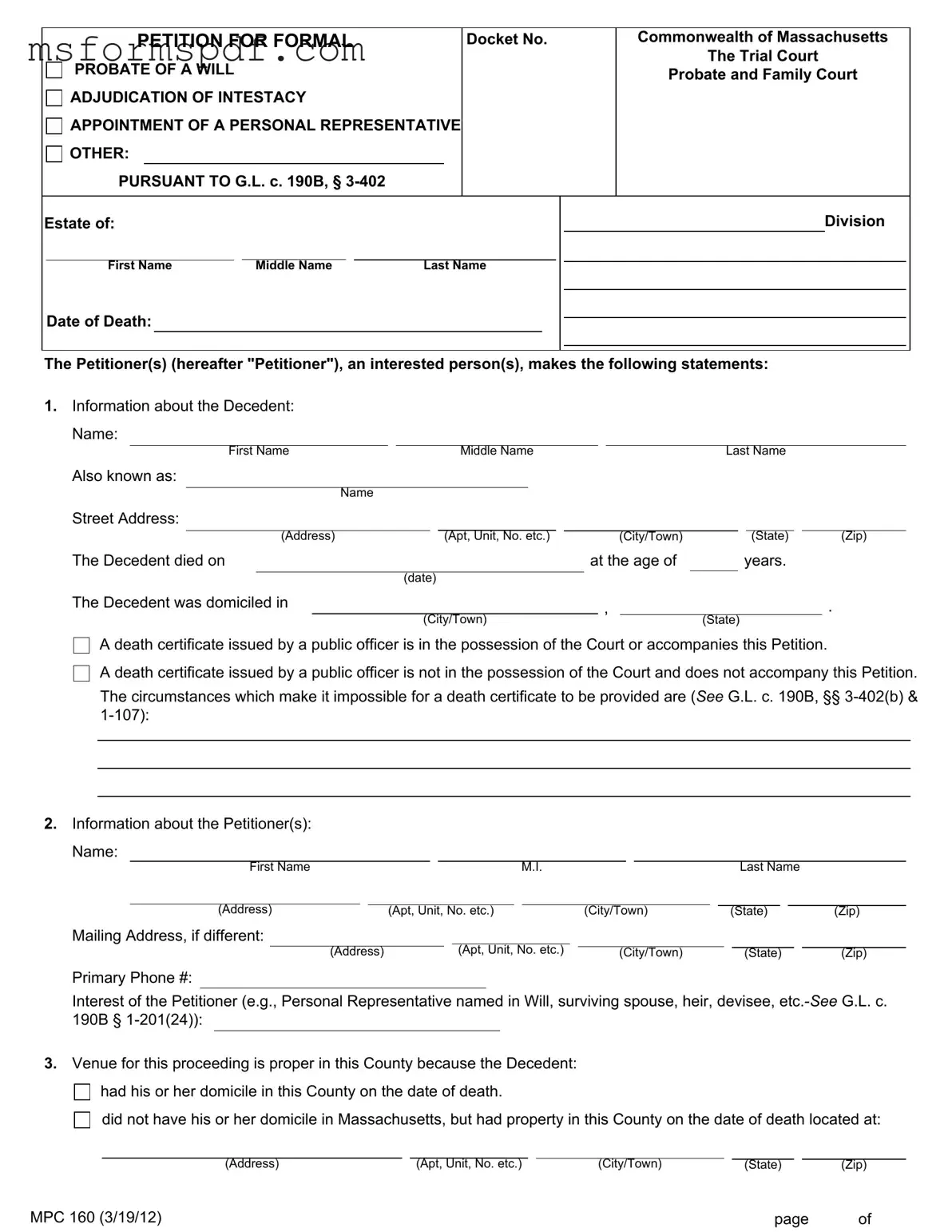Free Mpc 160 Massachusetts Template in PDF
The MPC 160 Massachusetts form serves as a petition for formal probate of a will, adjudication of intestacy, and the appointment of a personal representative. This important document is filed in the Probate and Family Court of Massachusetts, allowing interested parties to initiate the legal process following a decedent's death. By providing essential information about the decedent and the petitioner, the form helps ensure that the estate is managed according to the law and the decedent's wishes.
Launch Editor Now

Free Mpc 160 Massachusetts Template in PDF
Launch Editor Now

Launch Editor Now
or
➤ Mpc 160 Massachusetts PDF Form
Just a moment — finish the form
Fill out Mpc 160 Massachusetts digitally — no scanning, no printing.